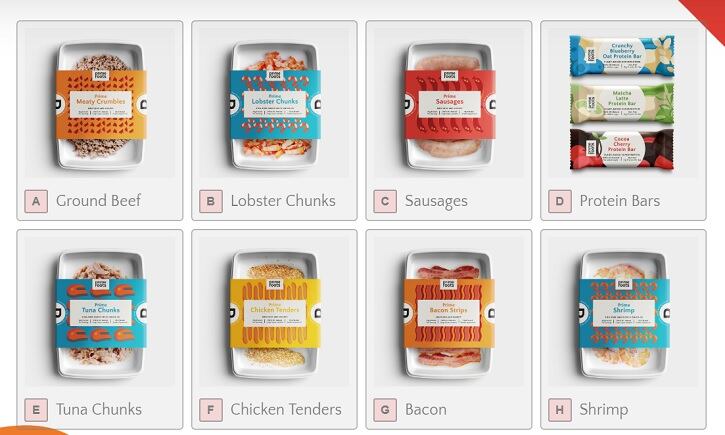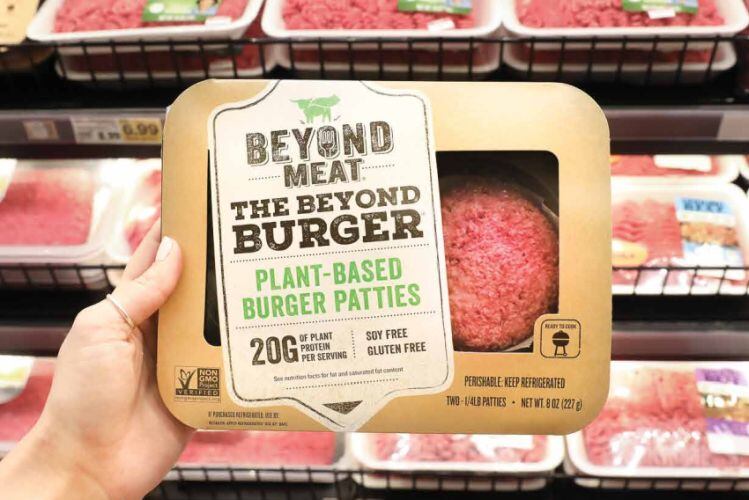“As a community-driven brand, we make products for our community, which means we definitely are going against the standard model of doing top-down product development and instead we are trying to crowdsource or have a bottom-up approach” to ensure what we offer is what consumers want, company co-founder Kim Le told FoodNavigator-USA.
She explained Prime Roots wants to be fully “transparent with how we are making the products, but also with how we are creating our brand. We really want people to get involved, and to tell their friends about us because we feel that having a community and direct contact to a group of people is the best way we can support our mission, which is to create these delicious high protein foods that are accessible for and that are good for the environment.”
To foster that sense of community, the startup is asking potential consumers to vote on which meat and seafood alternatives it should launch in 2020, and in exchange it is offering them a $10 credit towards future purchases. In addition, each “enthusiast” who encourages five friends to vote will receive a free sample box of the company’s products. So far, Le said, more than 10,000 people have voted on their favorite form factors.
The products “up for election” on the company’s website range from ground beef, sausage, chicken tenders and bacon to seafoods such as shrimp, lobster chunks and tuna chunks. They also include protein bars, crackers and a high protein savory dip.
All of the products are made with Prime Roots’ “superprotein,” which is based on koji – a fibrous protein that originates from Japan and is found in miso and sake.
“Koji is actually a whole source of protein. So, unlike many companies offering plant-based products that use isolated protein, we actually use the whole food – so it isn’t ultra-processed like a lot of other alternatives out there and it is completely all natural,” Le explained.
She noted that because the protein is completely neutral tasting it lends itself well to being layered with seasonings to create a wide variety of products, like those that Prime Roots’ is considering launching next year.
“The grocery store experience is really outdated”
Prime Roots’ community-driven approach lends itself well to the company’s direct-to-consumer marketing model, which relies more heavily on pull from shoppers who are heavily engaged with the brand and willing to promote it and place large orders, according to Le.
The DTC model also is well-suited for meat alternatives which, while gaining traction among consumers, are often understocked in stores or shelved in unexpected places – making it difficult for shoppers to find, Le said.
“The grocery store experience is really outdated and not a great way to consume alternative foods,” she said, explaining that niche or alternative products are more likely to thrive when they have a community around them who can support each other by sharing recipes or tips on how best to use the product.
By offering the product online, consumers across the US can enjoy it as soon as they discover it without having to “wait forever for a store to stock it or go to a specialty store like Whole Foods, which might not have it in stock,” Le said.
She added that the company will make the products available in subscriptions, which make consumers’ lives easier but also can facilitate projections and other planning needs for the company.
Eventually though, Le said, the brand wants to be available in retail stores – but only once it has cultivated enough following to drive velocity. One way it plans to do that is by partnering first with restaurants and chefs where consumers can try the product and learn how to prepare it, she said.
The company also will generate social media content that will help the products “go viral similar to how avocado toast became a thing around the world … because of Instagram foodies” sharing pictures and recipes, Le said.
Despite the many benefits of the DTC model for new brands, a major draw back is that it doesn’t allow consumers to easily try a product before they buy it, which is why Prime Roots plans on creating experiential pop-ups or hosting events where consumers can touch, smell and feel the product, Le said.
Some of these events will be offered through the company’s Ambassador Program, which encourages consumers who “want to get really involved and help us in a really meaningful way” to do by promoting the products that they get to experience at cooking classes or private dinners, Le said.
Reflecting on the progress the company has made so far as well as its unique go-to-market strategy, Le acknowledged that everything is a bit chaotic currently, but is excited about what is to come and thinks Prime Roots can help shape the next generation of plant-based offerings.




